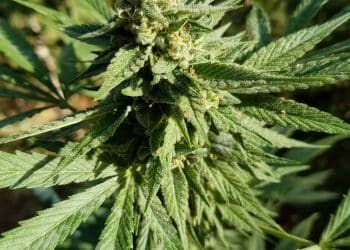Cannabis is legal in some form in more than half the U.S. As the plant is still classified as a Schedule 1 drug by the federal government, states with legal markets had to craft their own regulations.
One rule that’s been adopted by every state is the prohibition on mixing alcohol and delta-9-tetrahydrocannabinol (THC). You’re free to smoke a joint and grab a beer yourself, but you won’t find the two intoxicants legally mixed together in one product.
You can, however, find THC-infused beer and wine — there’s just no alcohol in the beverage. Dealcoholized wine or beer is either infused with cannabis plant matter or blended with a THC-rich emulsion. Emulsions are more popular as they mix easily with any liquid and don’t carry a strong flavor. Infusions work by submerging cannabis plant matter into the beer or wine and can result in a pungent, bitter-tasting product.
Rebel Coast, a California company that makes cannabis-infused beverages, claims that the emulsions created with their patented water-soluble technology actually affect how your body processes the cannabinoids.
“Unlike most edible cannabis that gets processed through the liver, when you ingest our cannabis wine, it gets absorbed through the mucous membranes in the mouth, and then through the stomach lining,” Josh Lizotte, the company’s CEO, explained.
“That means the onset time is about 15 minutes, which is three times as fast as every other traditional edible in the market.”
According to Lizotte, nanoemulsions are useful because the small droplet size lets your body absorb the cannabinoids easier. The potency isn’t affected.
Although states agree that cannabis-infused beer shouldn’t contain alcohol, there are many points where they disagree. Rules about label requirement, bottle design, and more change based on the manufacturer’s location.
In California, for instance, the state’s Bureau of Cannabis Control requires labels that clearly state the product contains no alcohol.
“We can’t even have dealcoholized wine or even alcohol removed on our label,” sais Lizotte, “but we can list the ingredients as fermented grape juice. Our lobbyist is working on changing that. But there’s a lot of red tape.”
Despite the hurdles, it’s likely that the market for cannabis-infused beer and wine will continue to increase.
Image source: Pxfuel











